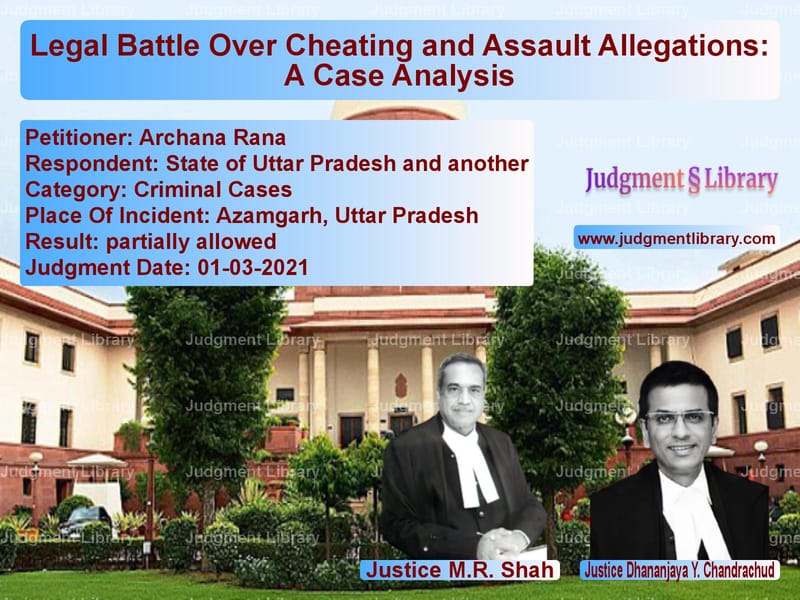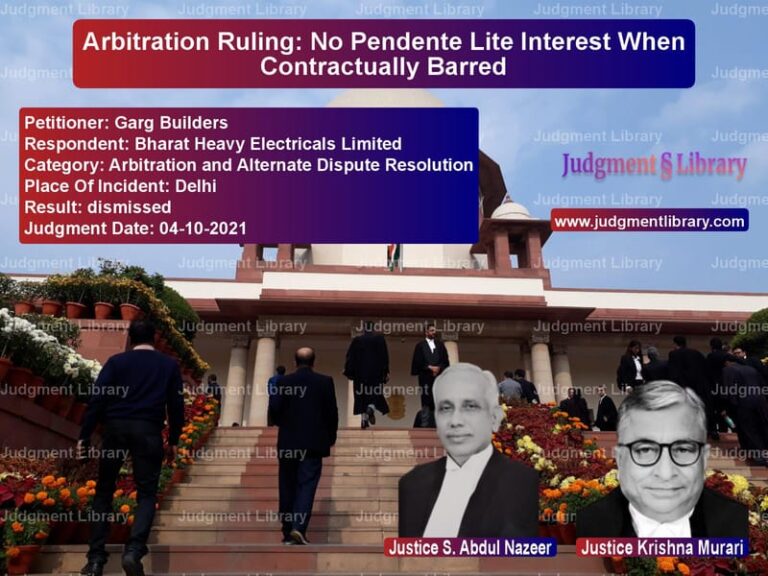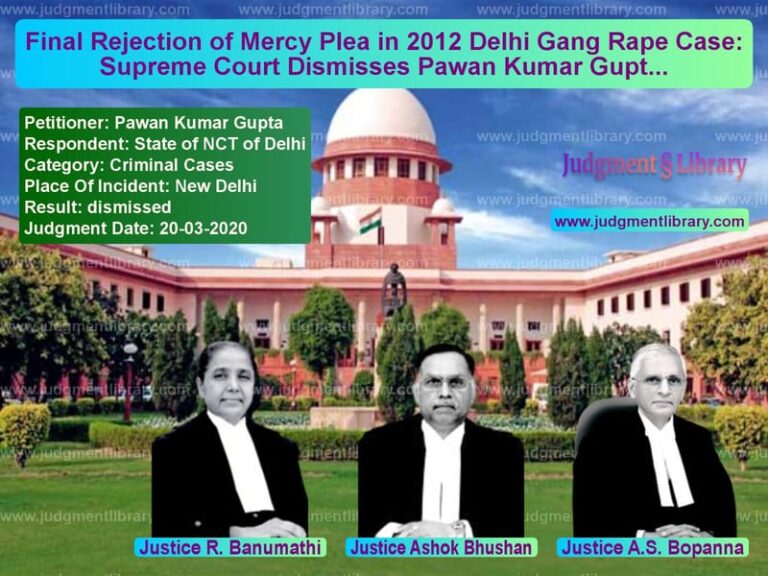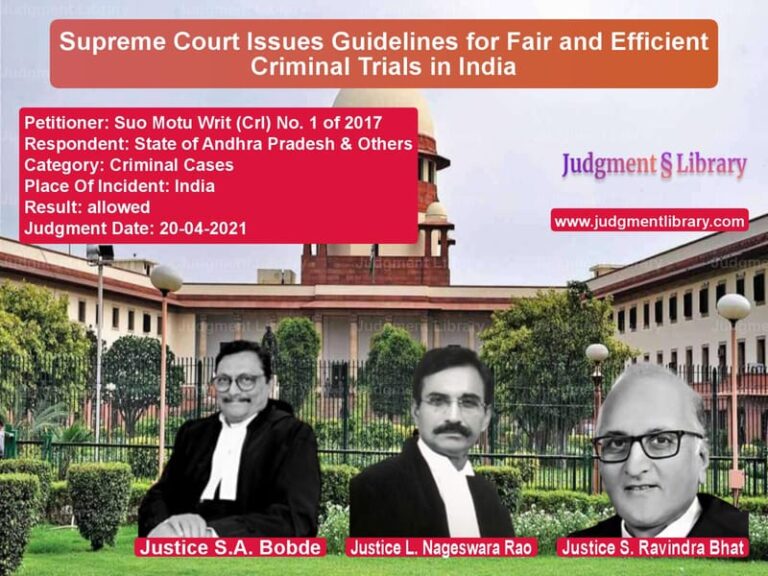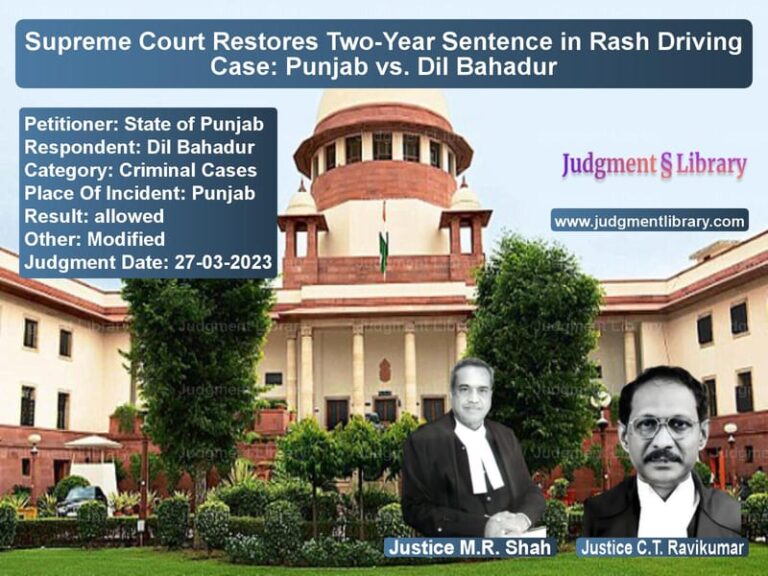Legal Battle Over Cheating and Assault Allegations: A Case Analysis
The case of Archana Rana v. State of Uttar Pradesh revolves around allegations of cheating and assault, leading to criminal proceedings under various sections of the Indian Penal Code (IPC). The judgment delivered by the Supreme Court on March 1, 2021, provides clarity on the legal interpretation of Sections 419, 420, 323, 504, and 506 IPC.
The appellant, Archana Rana, was accused along with her husband of taking Rs. 5,00,000 from the complainant under the pretense of securing a job for his son. When the job was not provided, the complainant approached the accused for a refund, which allegedly led to an altercation where the appellant was accused of pushing and threatening the complainant.
Arguments by the Petitioner
The petitioner’s counsel argued that even if all the allegations in the FIR and chargesheet were taken at face value, they did not establish a case under Sections 419 and 420 IPC. The counsel cited the Supreme Court judgments in Prof. R.K. Vijayasarathy v. Sudha Seetharam (2019) 16 SCC 739 and Dr. Lakshman v. State of Karnataka (2019) 9 SCC 677, asserting that the essential ingredients of cheating were absent. It was emphasized that the complaint primarily implicated the appellant’s husband, and there were no direct allegations of fraudulent inducement against the appellant herself.
Arguments by the Respondent
The respondent-State acknowledged that proving charges under Sections 419 and 420 IPC against the appellant was difficult but argued that the charges under Sections 323, 504, and 506 IPC were substantiated. The State maintained that there were sufficient grounds to continue the criminal proceedings for these charges.
Key Observations by the Supreme Court
Justice M.R. Shah, delivering the judgment, meticulously analyzed the ingredients required for an offense under Sections 419 and 420 IPC. The Court observed:
- To establish cheating under Section 420 IPC, there must be dishonest inducement leading to the delivery of property.
- The allegations in the FIR and chargesheet indicated that the complainant had given money to the appellant’s husband, not the appellant.
- There was no assertion that the appellant had fraudulently induced the complainant to pay the amount.
The Court concluded that the essential elements of cheating were missing and that the High Court erred in not quashing the criminal proceedings under Sections 419 and 420 IPC.
Final Verdict
The Supreme Court partially allowed the appeal, quashing the charges under Sections 419 and 420 IPC but upholding the charges under Sections 323, 504, and 506 IPC. The case will proceed in the trial court for the remaining charges.
Read also: https://judgmentlibrary.com/supreme-court-rejects-plea-of-juvenility-in-1982-murder-case/
This judgment reaffirms the importance of assessing criminal allegations in light of statutory requirements. It highlights that while fraudulent inducement is essential for proving cheating, allegations of assault and intimidation require independent examination based on factual evidence.
Petitioner Name: Archana Rana.Respondent Name: State of Uttar Pradesh and another.Judgment By: Justice M.R. Shah, Justice Dhananjaya Y. Chandrachud.Place Of Incident: Azamgarh, Uttar Pradesh.Judgment Date: 01-03-2021.
Don’t miss out on the full details! Download the complete judgment in PDF format below and gain valuable insights instantly!
Download Judgment: archana-rana-vs-state-of-uttar-prade-supreme-court-of-india-judgment-dated-01-03-2021.pdf
Directly Download Judgment: Directly download this Judgment
See all petitions in Fraud and Forgery
See all petitions in Bail and Anticipatory Bail
See all petitions in Judgment by Mukeshkumar Rasikbhai Shah
See all petitions in Judgment by Dhananjaya Y Chandrachud
See all petitions in partially allowed
See all petitions in supreme court of India judgments March 2021
See all petitions in 2021 judgments
See all posts in Criminal Cases Category
See all allowed petitions in Criminal Cases Category
See all Dismissed petitions in Criminal Cases Category
See all partially allowed petitions in Criminal Cases Category

